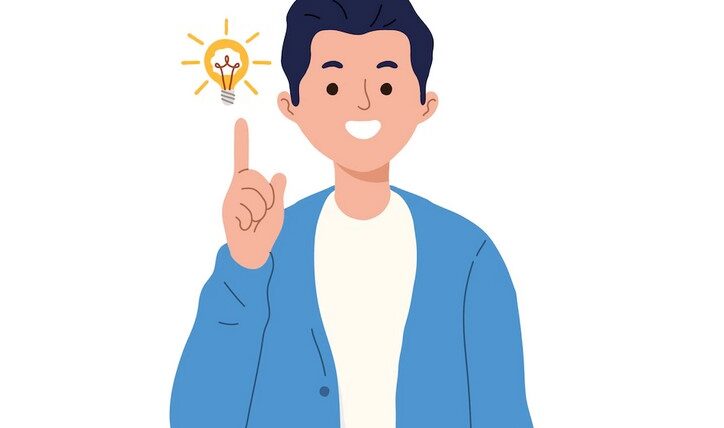Between finances, family, and work, the challenges of daily life can take a serious toll on your mental health. Anxiety is a normal reaction to stress that everyone experiences from time to time. Sometimes, these anxiety feelings can become entrenched, persisting even when those external difficulties and stressors are no longer present.
Whether you’re experiencing mild anxiety or diagnosed with an anxiety disorder, it’s essential to prioritize your mental health. Here’s how to work toward overcoming anxiety so you can start living a more productive, fulfilling life.
Acknowledge your anxiety symptoms.
Everyone feels anxious from time to time. You might notice a rapid heartbeat before making an important decision, or you might feel nauseous before a work presentation. But if you’re experiencing excessive fear that interferes with your daily life, you might have a diagnosable mental health condition.
Acknowledging your anxiety symptoms is the first step toward seeking treatment and feeling better. According to the American Psychiatric Association, anxiety disorders often include both psychological and physical symptoms. Some of these symptoms are listed below.
- Feelings of worry or dread
- Restlessness or irritability
- Headaches, fatigue, and insomnia
- Racing heart, shortness of breath, and chest pain
- Nausea, upset stomach, or diarrhea
- Intense fear in social situations
- Panic attacks
Seek professional mental health care.
If anxiety disorder symptoms are interfering with your daily life, it’s vital to seek professional help. Research shows that behavior therapy—alone or in combination with an anti-anxiety medication—is a highly effective treatment for anxiety disorders.
Psychodynamic therapy (PDT) is the oldest form of talk therapy and has a decades-long track record of helping people with anxiety. It focuses on people understanding themselves and their motivations more deeply and clarifying how they see the world around them. When it comes to anxiety treatment, psychodynamic therapy focuses on exploring and bringing to conscious awareness those parts of life and your inner world that create anxiety. According to this kind of therapy, as these thoughts and beliefs become more conscious, they have less ability to create anxiety and you’ll achieve a higher mastery of understanding how to soothe and calm yourself.
One popular form of talk therapy, cognitive behavioral therapy (CBT), can help individuals with anxiety disorders replace their negative thoughts with more positive ones. CBT involves a collaborative process, where you’ll work together with your mental health specialist to identify specific concerns and develop healthy coping skills. After learning healthy ways to cope with anxiety, you’ll be able to practice your new skills outside of therapy sessions to manage anxiety in difficult situations.
Cognitive behavioral therapy is an effective treatment for most types of anxiety disorders, including post-traumatic stress disorder (PTSD), generalized anxiety disorder (GAD), social anxiety disorder, panic disorder, and obsessive-compulsive disorder (OCD). Some other types of therapy used to treat anxiety disorders include interpersonal therapy (IPT), dialectical behavior therapy (DBT), and psychodynamic psychotherapy.
Talk to your psychologist about anti-anxiety medication.
If you’re experiencing excessive anxiety, consider talking to your psychologist or health care provider about anti-anxiety medication. In combination with psychotherapy, anti-anxiety medications can help relieve the physical symptoms of anxiety and improve your quality of life. Some common medications prescribed in the treatment of anxiety include the following:
- Antidepressants, including selective serotonin reuptake inhibitors (SSRIs), tricyclic antidepressants, and monoamine oxidase inhibitors (MAOIs)
- Benzodiazepine
- Beta-blockers
It’s important to remember that anti-anxiety medications should supplement talk therapy for a successful treatment plan. If you experience any side effects, be sure to talk to your psychiatrist so they can adjust your dose and prescription as needed.
Don’t forget about your physical health.
Your physical health is just as important as your mental health. Along with psychotherapy and anti-anxiety medications, living a healthy lifestyle can help you start feeling better. The following are lifestyle changes that can help you overcome anxiety.
- Try meditation and mindfulness. Mindfulness meditation can help you focus on the present moment and ease your anxiety symptoms. Try incorporating mindful strategies and practices into your daily routine and slowly increasing the duration over time. The best part? You can meditate anywhere: at work, in the garden, or even in bed.
- Ditch the caffeine. A cup of coffee might help you wake up in the morning, but it only makes your anxiety symptoms worse. Caffeine can lead to high blood pressure, heart palpitations, and chest pain. Instead of reaching for a cup of coffee, try non-caffeinated herbal tea.
- Maintain a balanced diet. If your anxiety disorder causes nausea or digestive problems, it might be tempting to skip meals. However, skipping meals can make your anxiety symptoms worse. Your blood sugar drops when you don’t eat, which releases a stress hormone called cortisol. To combat symptoms of anxiety, try meal planning to maintain a healthy, balanced diet.
- Get enough sleep. Sometimes, we get so caught up with work or school work that we forget to sleep. Even if you’re staying up late to finish a project, it’s important to stick to a regular schedule and get enough deep sleep. According to the Sleep Foundation, a lack of sleep can exacerbate mental health problems.
Therapy for Anxiety Disorders
Whether you’re experiencing occasional anxiety or more intense anxiety disorder symptoms, seeking professional help is the first step toward feeling better. To make the most out of your therapy sessions, it’s essential to choose a therapist that you feel comfortable talking to about your negative thoughts, feelings, and emotions, according to the American Psychological Association (APA).
To find the right therapist, reach out to a mental health professional through Beyond Therapy. We’ll connect you to a compassionate, experienced anxiety disorder therapist that you feel comfortable with. One of the licensed therapists on the Beyond Therapy platform will help you explore your treatment options, learn healthy ways to cope with anxiety symptoms, and live a more fulfilling life.




